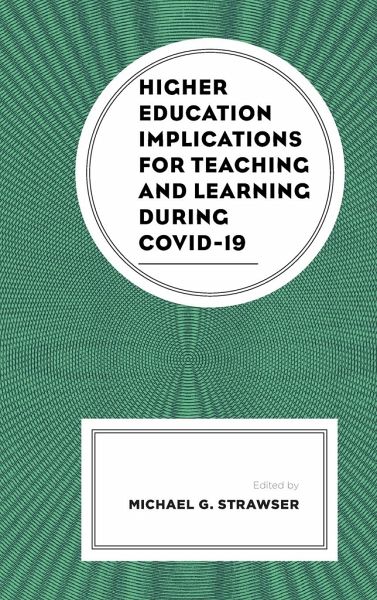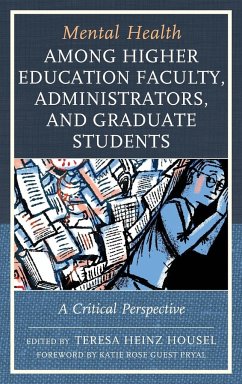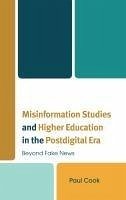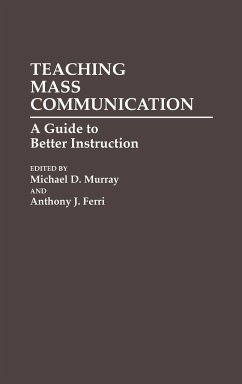
Higher Education Implications for Teaching and Learning during COVID-19

PAYBACK Punkte
53 °P sammeln!
Higher Education Implications for Teaching and Learning during COVID-19 provides different perspectives regarding the impact of COVID-19 on college teaching and learning and on students, both collectively and individually. Contributors argue that the pandemic forced a higher education reckoning as institutions around the world were forced to shut their physical doors and open up their online platforms in a wider capacity. While these concerns are linked to a certain point in time, there is much we can learn from collective institutional responses to the pandemic-induced pivots to virtual teach...
Higher Education Implications for Teaching and Learning during COVID-19 provides different perspectives regarding the impact of COVID-19 on college teaching and learning and on students, both collectively and individually. Contributors argue that the pandemic forced a higher education reckoning as institutions around the world were forced to shut their physical doors and open up their online platforms in a wider capacity. While these concerns are linked to a certain point in time, there is much we can learn from collective institutional responses to the pandemic-induced pivots to virtual teaching and learning. Scholars of higher education, organizational communication, and crisis communication will find this book particularly useful.












